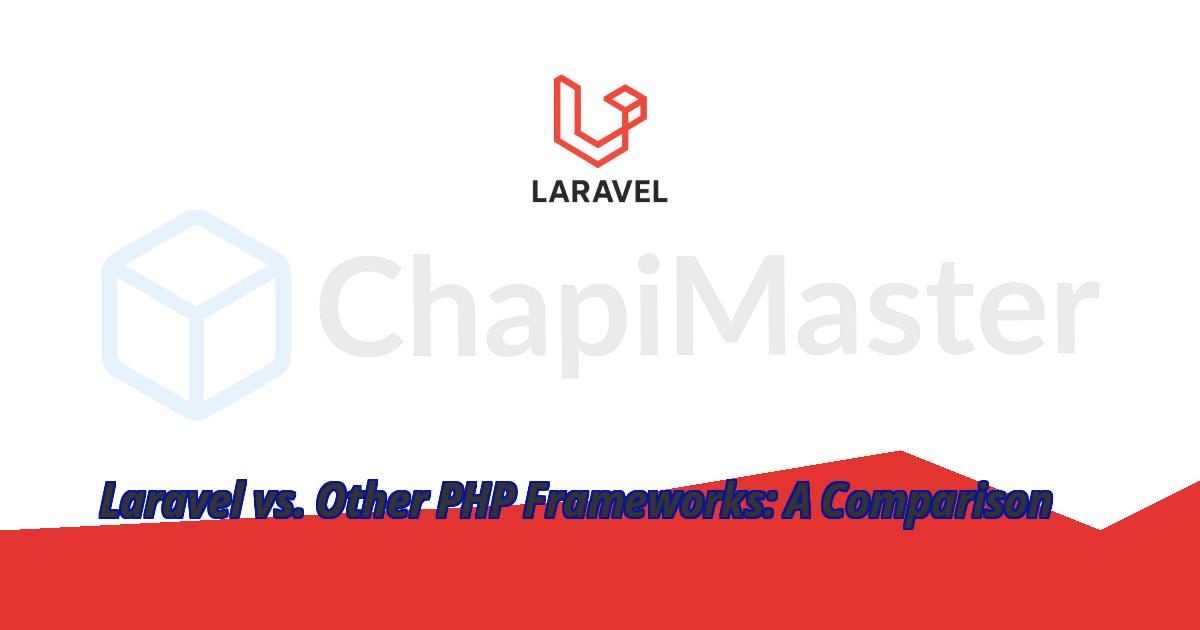Laravel vs. Other PHP Frameworks: A Comparison
Why Compare PHP Frameworks?
PHP has a rich ecosystem of frameworks that simplify backend development. Among them, Laravel is arguably the most popular — but how does it compare to others like Symfony, CodeIgniter, and Yii2? This guide explores the differences in architecture, developer experience, performance, and real-world use cases.
Core Comparison Table
This table summarizes the main differences among Laravel, Symfony, CodeIgniter, and Yii2.
| Feature |
Laravel |
Symfony |
CodeIgniter |
Yii2 |
| Release Year |
2011 |
2005 |
2006 |
2008 |
| Architecture |
MVC |
MVC |
MVC |
MVC |
| Templating Engine |
Blade |
Twig |
Native PHP |
Twig |
| ORM |
Eloquent |
Doctrine |
Custom |
ActiveRecord |
| Routing |
Simple, expressive |
Config-heavy |
URL-based |
Config-based |
| REST API Support |
Built-in (Sanctum) |
Needs configuration |
Manual setup |
Built-in module |
| Learning Curve |
Beginner-friendly |
Advanced |
Very Easy |
Moderate |
| Popularity (2025) |
⭐⭐⭐⭐⭐ |
⭐⭐⭐⭐ |
⭐⭐ |
⭐⭐ |
Laravel: The Developer-Friendly Choice
Laravel is designed for rapid development with elegant syntax. It comes with built-in tools like:
- Eloquent ORM for fluent database interaction
- Blade templating with layout inheritance
- Laravel Sanctum & Passport for API auth
- Out-of-the-box support for queues, jobs, events
Symfony: The Powerhouse for Enterprise
Symfony is robust, highly customizable, and used by enterprise platforms like Drupal and Magento. Its components (e.g., Routing, HTTPFoundation) are reused across other frameworks, including Laravel.
⚠️ Note: Symfony has a steep learning curve and is best suited for complex or large-scale apps with advanced architecture needs.
CodeIgniter: Lightweight & Straightforward
CodeIgniter focuses on simplicity. It doesn’t force developers into rigid structures, making it ideal for small projects or those who prefer native PHP.
Downsides include outdated libraries and lack of built-in support for modern API authentication or queue jobs.
Yii2: Fast But Less Popular
Yii2 is performance-oriented and supports REST out of the box. Its ActiveRecord ORM resembles Eloquent, and it uses Gii (a code generator) for scaffolding.
However, community activity and job market demand for Yii have declined compared to Laravel or Symfony.
When Should You Choose Laravel?
Laravel is a solid choice if:
- You want a balance of performance, flexibility, and community support
- You’re building SaaS, admin panels, or REST APIs
- You value developer experience, fast prototyping, and package availability
Conclusion
While Laravel shines in usability and community support, Symfony is ideal for enterprise-level apps. CodeIgniter serves niche needs for lightweight apps, and Yii2 is a viable but less adopted choice.
Choose based on your project’s complexity, team expertise, and long-term goals.


